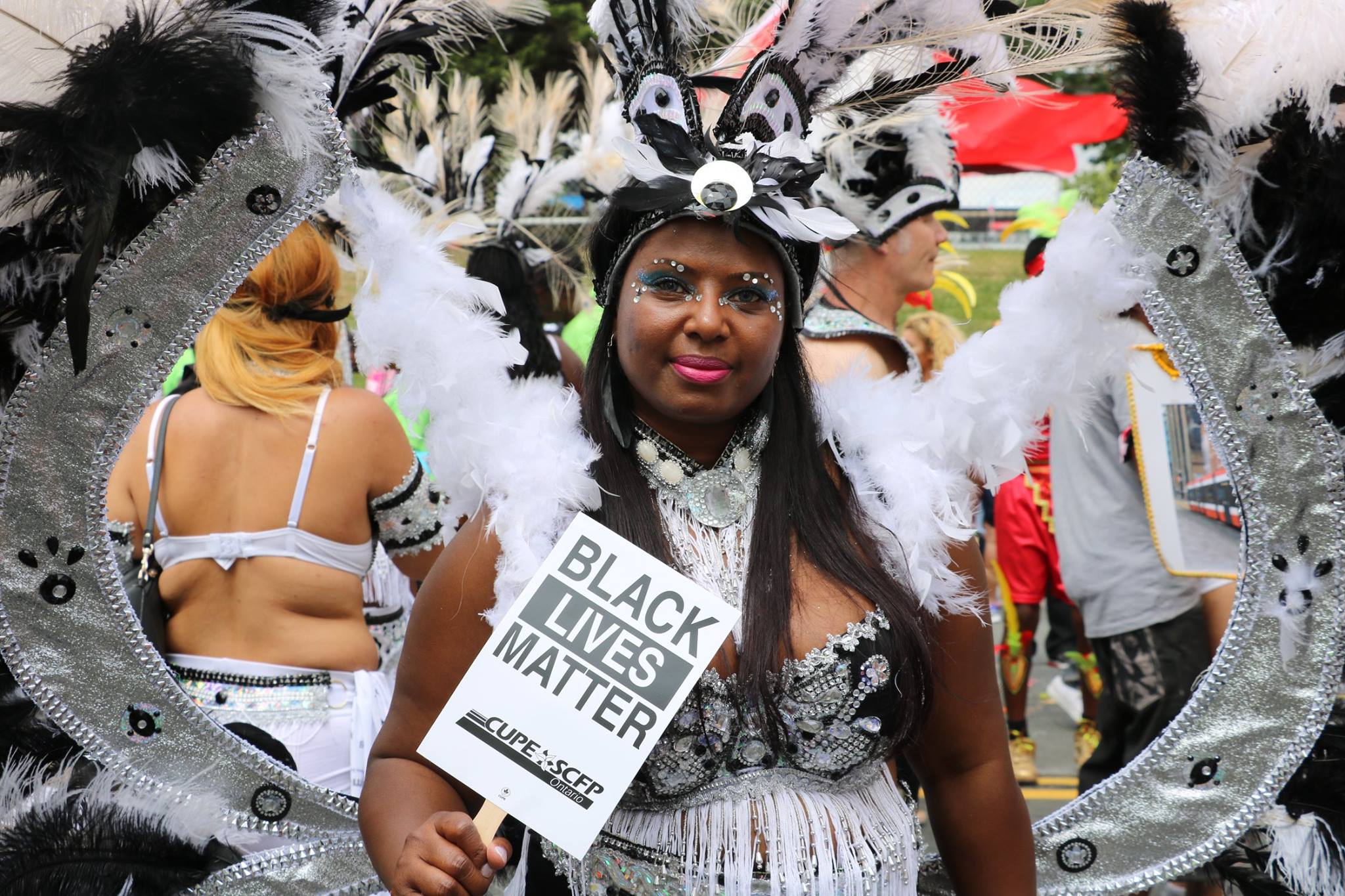This year is the 51st anniversary of Carnival, which began in Toronto as a gift from the Caribbean community to Canada’s centennial celebrations in 1967. The festival originally took place on Simcoe Day, which marks the end of slavery in Canada on August 1, 1834.
Carnival is not only a celebration of Caribbean culture, it also symbolizes the revolt of the Caribbean people against oppression. CUPE Ontario believes that the original spirit of resistance of Carnival should be preserved by challenging the oppression of people of colour.
Police Accountability, Equity, and Anti-Racism
Over-policing remains a major issue facing racialized people in Canada. 80% of black men between 25 and 44 say they’ve been stopped by the police, 25% say police have used force against them, and 60% say police have harassed them.
While Ontario supposedly banned the the arbitrary collection of I.D. based on race – a practice known as carding – police are still free to card while investigating crimes or during traffic stops. Moreover, there is no formal federal ban on racial profiling. Racialized folks are over-represented in our prison system and underrepresented in economic, social, and political life.
Solidarity with Indigenous Struggles
Carnival takes places on the traditional territories of the Huran Wendat and Petun, the Seneca, and most recently the Mississaugas of the Credit River. Carnival is an opportunity to respect this history, acknowledge the devastating legacy of colonization, and recognize the importance of reconciliation. We strongly believe the struggles of racialized and indigenous peoples in Canada are intertwined.

